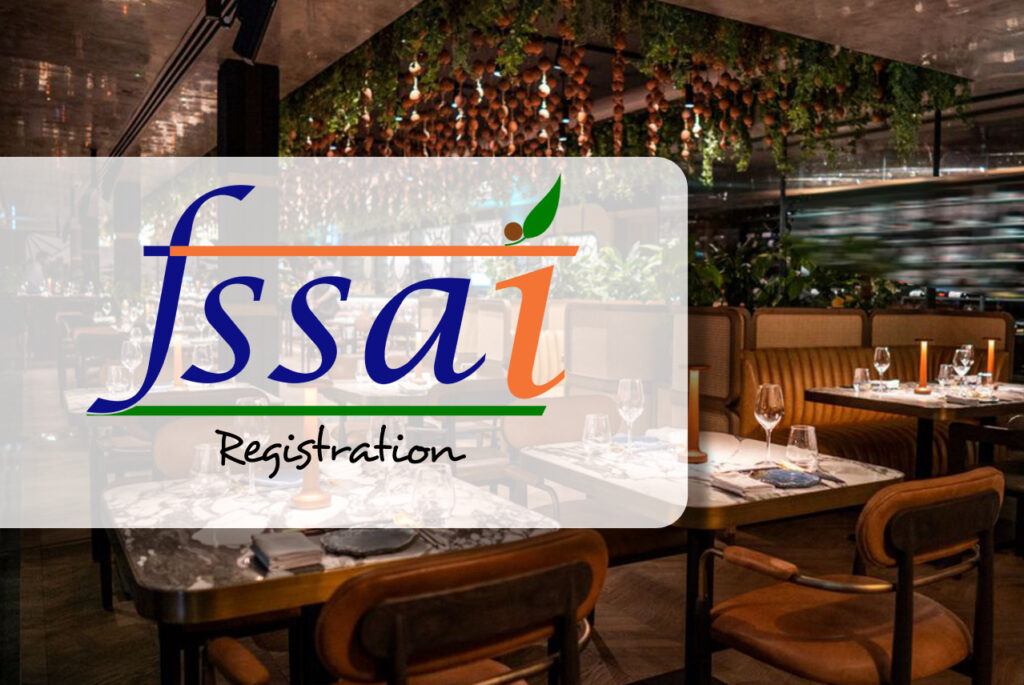FSSAI Food License
- Get any of 3 types of FSSAI registration
- Basic Registration : For Sales 10 lakh/year
- State Registration : For Sales of 10 lakh – 2 Crore/year
- Central Registration : For Sales > 2 Crore/year
- FSSAI application code in 7 days & license in 60 days
- PAN India Services
CONTACT US
Documents Required For FSSAI Registration
Declaration form
Authority letter
Copy of Property paper (If owned property)
Copy of Rent agreement (If rented property)
Food Safety Management System plan or certificate
Electricity/ Water bill (Business Place)
Copy of Aadhaar Card/ Voter identity card of Proprietor/ Partners/ Director
Form IX: Nomination of Persons by a Company along with the Board Resolution
Additional Documents For Manufacturer
-
Blueprint/layout plan of the processing unit
-
List of Equipment and Machinery
-
List of food category desired to be manufactured
-
Pesticide residues report of water
-
Pesticide residues report of water
Types Of FSSAI License
Frequently Asked Question
The Certification is maintained for a period of 3 years under the following conditions.
- The Surveillance Audits are conducted as planned and the client has demonstrated that it continues to satisfy the requirements of the management system standard as confirmed by the Organisation.
- All the non-conformance raised during previous surveillance are closed within the time frame agreed and correction and corrective actions for the non conformities raised during the current audit are identified and accepted by the Organisation as per conditions specified in section 2.5 of this agreement.
- The Internal Audit and the management reviews are conducted as scheduled and there are no issues pending. The client shall maintain suitable records of customer complaints and keep the records of investigation and remedial actions taken with respect to such complaints for verification by the Organisation auditors.
- All outstanding dues to the Organisation are paid.
The limit to be considered under GST laws are different for the different categories:
Manufacturing Sector – 40 lakhs
Service sector – 20 lakhs
In North Eastern states – 10 lakhs
If there is delay in filing GST, the penalty charged if Rs 200/- per day. There is no such late fees charged in IGST
If the GSTR is not Filed, then there will be a penalty of 10% of Tax due or Rs 10,000, whichever is earlier
If someone has committed fraud, then there will be a penalty of 100% of the tax due or Rs 10,000 whichever is earlier
Composition Scheme is a simple process under the GST law for all the taxpayers, so that they can get rid of the difficult formalities and have to pay the GST at a fixed rate based on the turnover. This scheme is opted by the taxpayer whose turnover is less than Rs 1.0 crore. But now the CBIC has notified the increase to the threshold limit is from Rs 1.0 Crore to Rs. 1.5 Crores. The limit is now Rs 75* lakh, in case of North-Eastern states and Himachal Pradesh. The applicable GST rate under the composition scheme is 1% of the rate of annual turnover, in case of manufacturer or traders(Goods).
When GST Registration Mandatory in India?
#Turnover Criteria
All taxpayers who have an annual turnover above ₹40 lakhs are required to get new GST registration.
#Causal taxpayer
If you supply goods or services in events/exhibitions where you do not have a permanent place of business, you need to get online GST Registration before starting a business. Such a dealer has to pay GST on the basis of an estimated turnover of 90 days. The validity of causal GST Registration is 90 days.
#NRI taxpayer
NRI taxpayer, who does not have a place of business in India, wishes to start a business, then he has to apply for GST Registration in India before beginning operations in India. The validity of a new GST registration is 90 days.
#Agents of a supplier & Input service distributor
All Input service distributor who wants carry-forward benefit of input tax credit requires gst registration.
#Reverse Charge
A business who requires to pay tax under the reverse charge mechanism need GST Registration.
#E-Commerce portal
Every e-commerce portal (such as Amazon or Flipkart) under which multiple vendor’s selling their product requires gst registration.


